
Does Dairy Cause Acne? The Truth About Acne-Triggering Foods
In this day and age, we are constantly bombarded with images of "perfect" skin. Every acne-free Instagram model and celebrity seems to tout the benefits of cutting out dairy products from their diet, but is there any truth to this claim?
The answer, unfortunately, is a little complicated. There is no one definitive answer to whether or not dairy causes acne. However, there are some studies that suggest a correlation between acne and consuming dairy products.
To take care of your body, it is important that you understand what it needs and what causes acne for you. If you notice that acne breakouts tend to occur after consuming dairy products, it may be worth cutting back on your intake or eliminating dairy altogether. However, if you don't see a difference, there's no need to eliminate dairy from your diet.
With that being said, let's discuss the potential acne-triggering foods.
According to health experts, the dairy products that we consume today are formulated using chemicals and hormones that can be acne-inducing. For instance, milk from cows is often laced with growth hormones and other chemicals that can cause our skin to break out.
Additionally, dairy products are also one of the top food sources of iodine. Iodine is a known acne-causing agent, as it can contribute to the development of acne lesions.
Moreover, dairy products like milk contain whey and casein proteins. When these proteins are broken down, they can release insulin-like growth factor-I (IGF-I). IGF-I is a hormone that has been linked to acne causes.
Lastly, lactose, which is a sugar found in milk, can also contribute to acne breakouts. When lactose is not properly digested, it can lead to the overgrowth of acne-causing bacteria.
Hence, it is important that you know the source of your dairy products. If possible, opt for organic and hormone-free dairy to help reduce your acne risk.
What are the other foods that cause acne?
Aside from dairy, there are other acne-triggering foods that you should be aware of. These include:
- Sugar: Sugar can cause inflammation and trigger acne breakouts. When sugar is broken down by the body, it produces a substance called advanced glycation end products (AGEs). AGEs can damage collagen and elastin, which can lead to the development of wrinkles and fine lines. Moreover, they can also increase inflammation, which can exacerbate acne breakouts.
- Refined carbs: Refined carbs like white bread, pasta, and pastries are high on the glycemic index. Foods that are high on the glycemic index can cause a spike in blood sugar levels. This, in turn, can trigger acne breakouts.
- Chocolate: Chocolate has been long thought to be one of the acne-causing foods. However, there is no definitive evidence to support this claim. Nevertheless, chocolate does contain milk and sugar, which, as we know, can trigger acne breakouts.
- Greasy and fried foods: Greasy and fried foods are often high in trans fats. Trans fats can clog pores and lead to the development of acne lesions.
- Caffeine: Caffeine can cause dehydration, which can lead to dry skin. Dry skin is more susceptible to acne breakouts.
- Alcohol: Alcohol can dehydrate the skin and strip it of its natural oils. This can make the skin more susceptible to acne breakouts.
Now that we know which foods can trigger acne breakouts let's discuss some tips on how to avoid them.
How to Avoid Acne-Triggering Foods
The best way to avoid acne-triggering foods is to eat a balanced and healthy diet. Include plenty of fruits, vegetables, whole grains, and lean protein in your diet. Avoid processed and sugary foods as much as possible.
It is also important to drink plenty of water. Water helps to flush out toxins from the body and keeps the skin hydrated. Aim to drink at least eight glasses of water a day.
Moreover, make sure to cleanse your face regularly. Use a gentle cleanser that won't strip the skin of its natural oils. Wash your face twice a day, in the morning and at night, before you go to bed.
Lastly, don't forget to moisturize your skin. Choose a light, oil-free moisturizer that won't clog pores. Apply it to your face and neck after cleansing.
Following a healthy diet and lifestyle, you can help reduce your acne breakouts. By avoiding acne-triggering foods, you can also help keep your skin looking clear and radiant.
Also Read: Does Eating Eggs Cause Acne? Here's What the Science
Treating Acne: What you need to know
Acne is a common skin condition that affects millions of people around the world. Although acne is not a serious health threat, it can cause physical and emotional scars.
There are many acne treatments available today. The best acne treatment for you will depend on your individual needs and skin type.
The Pink Foundry's Anti Acne Range of products has emerged as a boon for people with acne. The products are formulated to regulate sebum production, even the skin texture, and control the growth of acne.
If you are looking for an acne treatment that is gentle and effective, look no further than the Pink Foundry's Anti Acne Range.
























































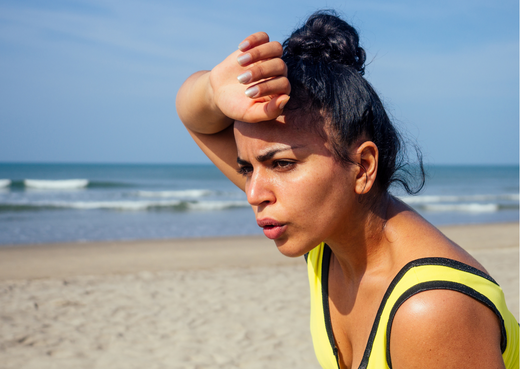
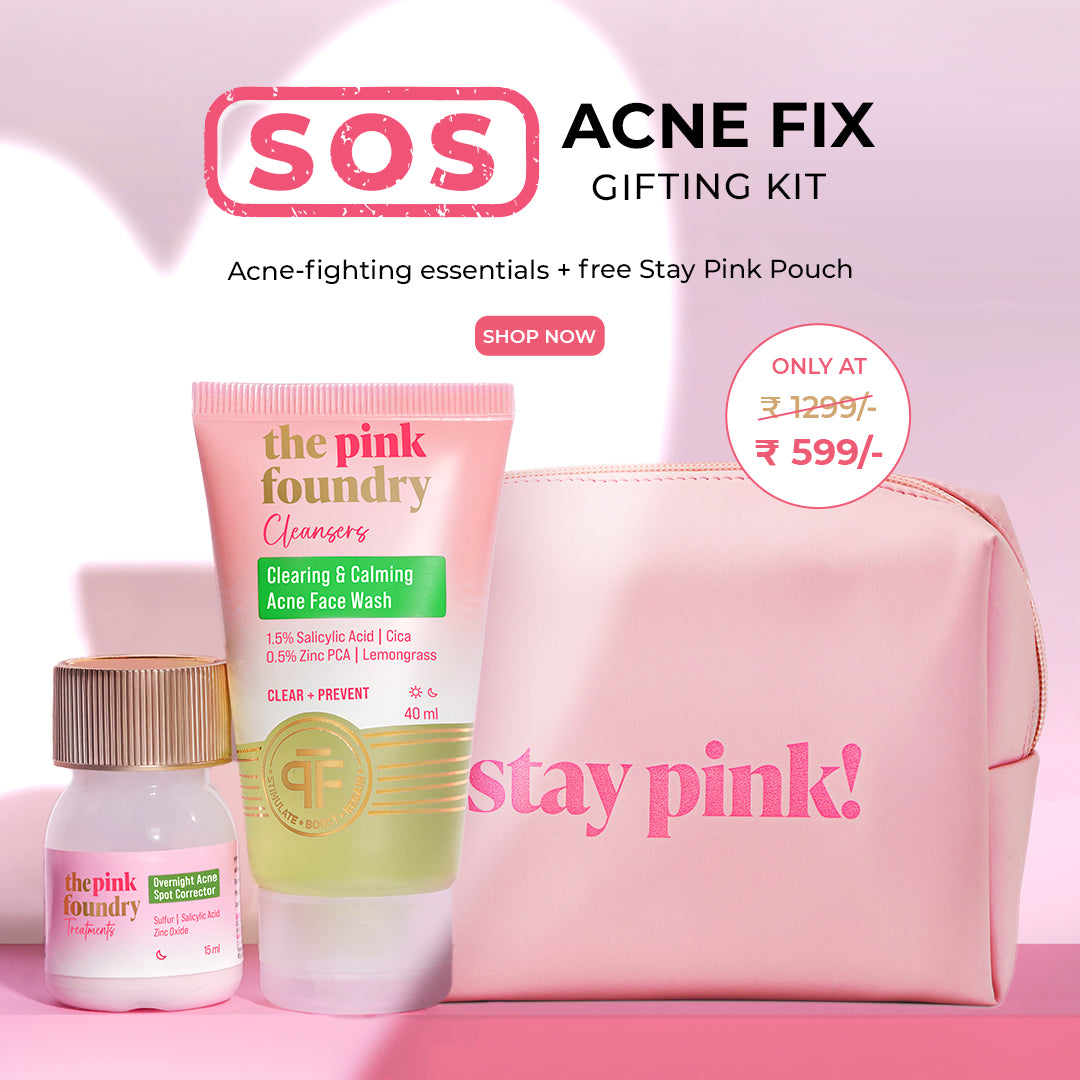
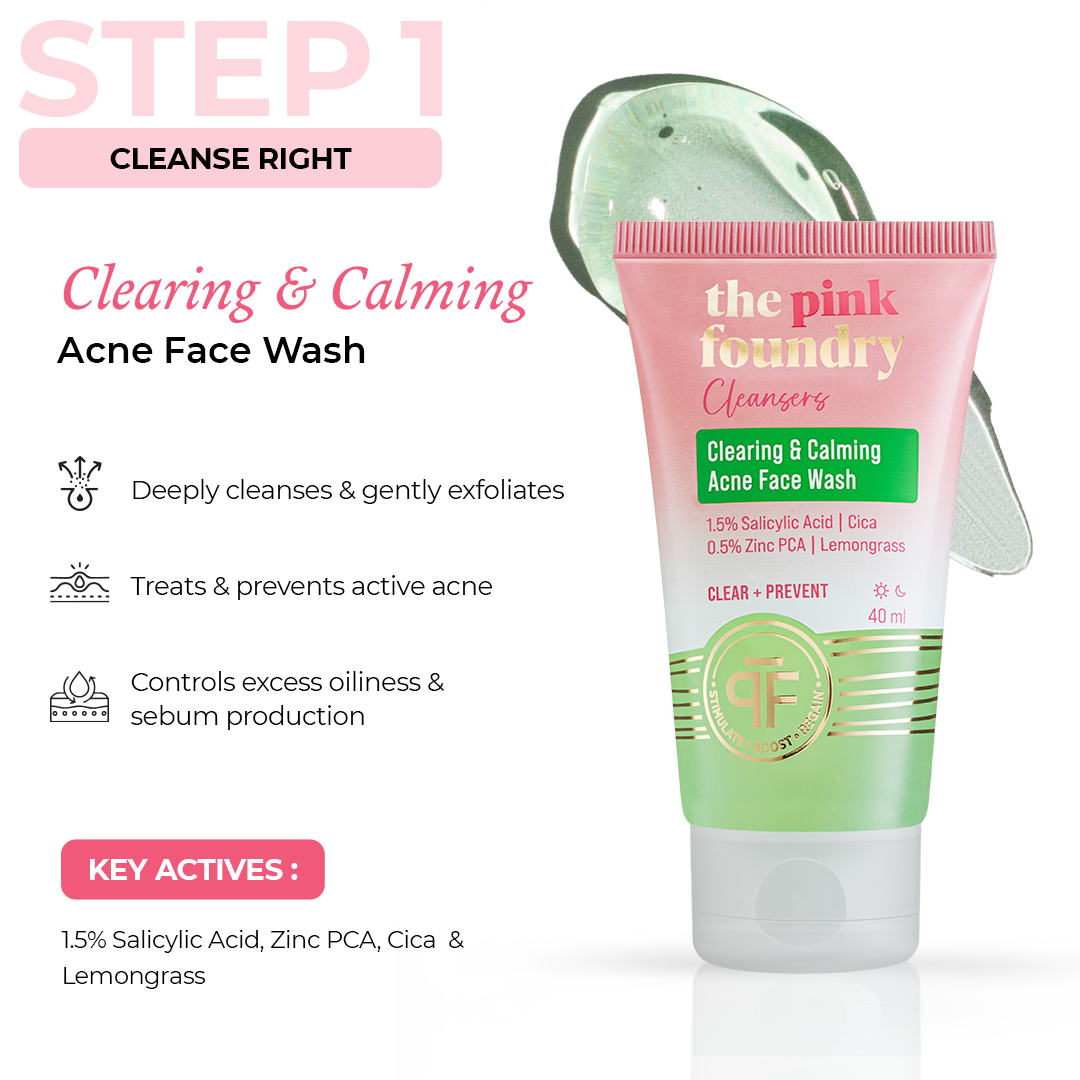




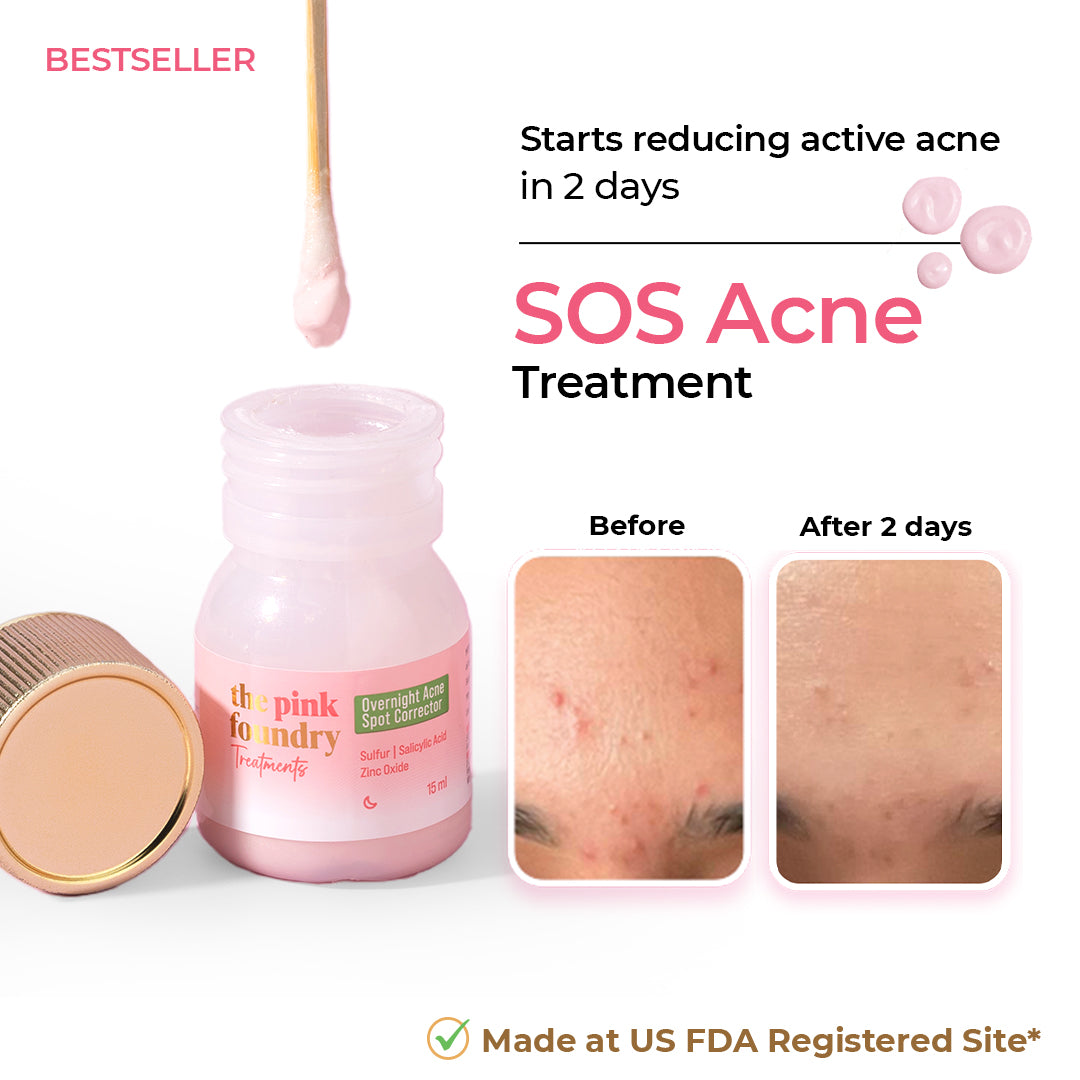
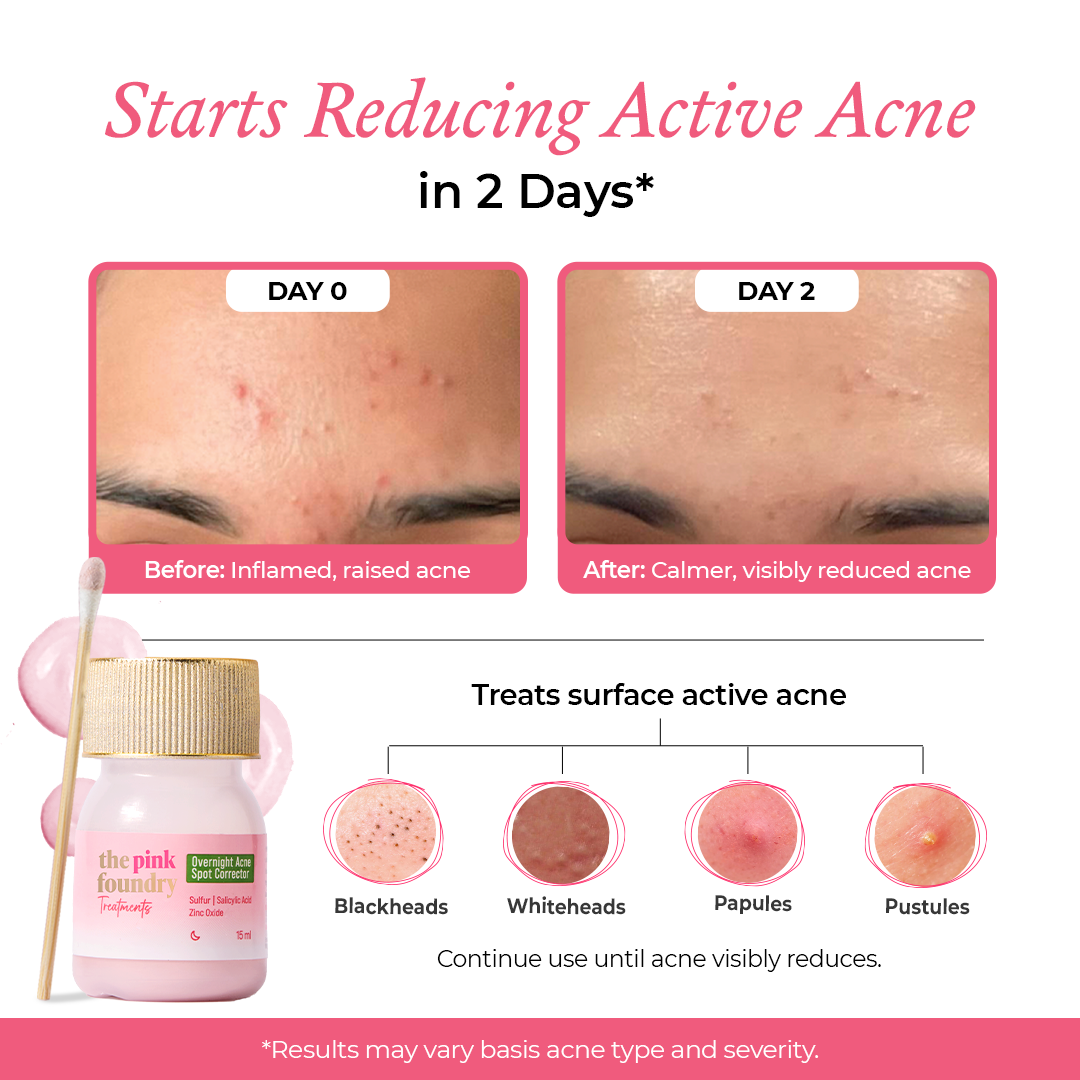








Leave a comment
This site is protected by hCaptcha and the hCaptcha Privacy Policy and Terms of Service apply.